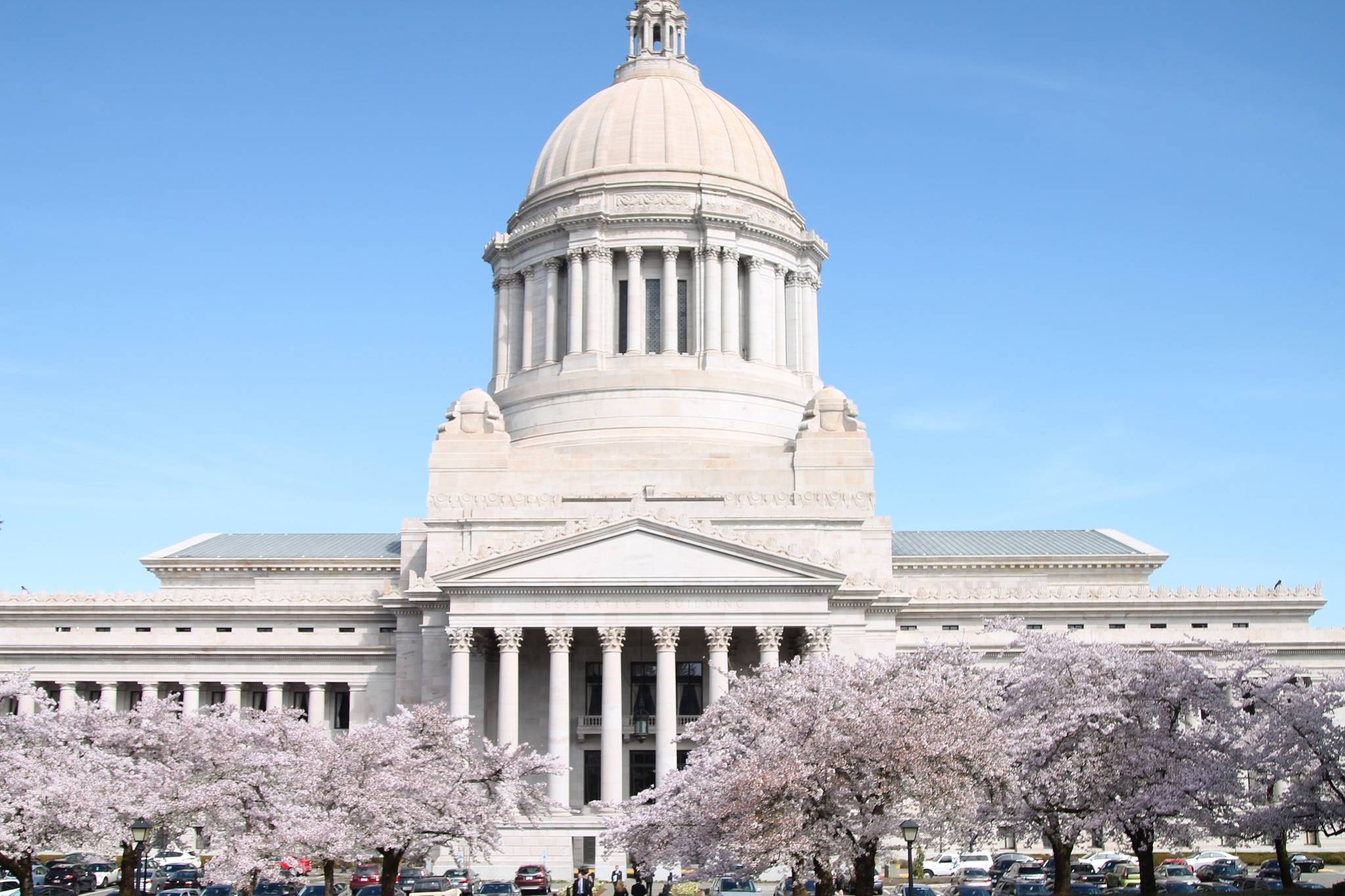OLYMPIA — As state workers contend with furloughs and wage freezes, their elected bosses got raises Wednesday — and now want to give back or give away the extra earnings.
A year ago, an independent panel agreed on salary boosts for state lawmakers, the governor, eight other statewide executives and hundreds of judges.
Then the COVID-19 pandemic hit, dousing the state’s roaring economy, driving thousands out of work and opening a multibillion-dollar hole in the state budget.
Gov. Jay Inslee canceled a 3% raise set to take effect July 1 for directors of his cabinet agencies and some managers. Employees, union and non-represented did get a raise but must take several days of furlough by year’s end.
Meanwhile, leaders of the House and Senate, in separate actions, suspended pay hikes scheduled July 1 for hundreds of legislative staff. Collectively, those moves by the legislative and executive branches are expected to save roughly $58 million.
Those elected leaders can’t turn salary hikes down. State law doesn’t allow it.
“You can’t feel good about yourself getting a pay raise,’ said Sen. Keith Wagoner, R-Sedro-Woolley. “As much as I’d like to have the money, you’ve got to admit it’s egregious for us to get a raise when so many people have been hurt in this pandemic.”
Wagoner plans to donate the additional $4,115 he’ll earn this year to Rotary Clubs in Arlington, Monroe and his hometown. He said he wants the money to stay in his legislative district.
Rep. Mike Sells, D-Everett, a former union leader, said “it doesn’t seem right to take the increase” as employees are forced to sacrifice amid an economic downturn.
“I don’t plan on taking the increase. The question is how and what is the right way” to dispense with it, he said.
Adjustments to the level of pay of elected members of the state’s executive, legislative and judicial branches are considered every two years by the Washington Citizens’ Commission on Salaries for Elected Officials. Members include a resident randomly selected from each of the state’s 10 congressional districts, plus representatives from business, organized labor, higher education, the legal world and human resources.
Voters established the commission in 1987 to prevent politicians from deciding their own pay. Its work is funded with state tax dollars but the commission operates independently of the three branches of state government.
In February 2019, the panel approved salary changes to take effect July 1, 2019, and on Wednesday. They boosted the base pay of elected positions and, on top of that, added a 2% cost-of-living adjustment each year.
Lawmakers are now earning $56,881, a nearly 8% bump. Leaders of the four caucuses will continue to earn more because they receive a stipend for responsibilities.
These increases have been a subject of conversation among legislators for some time. In April, 40 Republican and Democratic legislators, representing both chambers, asked the salary commission to hold a special meeting to cancel the increases.
“Simply put, the world is greatly changed from a year ago when these scheduled salary increases were put in place,” they wrote. “At a time when so many are unemployed, it makes no sense for elected officials to be granted a raise. The foregoing of scheduled increases would allow the savings to be directed to higher and better priorities of protecting programs for the most needy in our state.”
Rep. Dave Paul, D-Oak Harbor, doesn’t want to keep the raise, but it might be necessary. He works for Skagit Valley College. His wife works for Western Washington University. Both institutions are cutting jobs.
“If my wife and I do not get laid off, I will donate part or all of it to charity or figure out how to get it to the treasury,” Paul said. And when the Legislature meets in special session, he said, he’ll support efforts to repeal the increase.
Inslee, who is seeking a third term, will make $187,353, up from $182,179 last year. He plans to donate to charities, a spokeswoman said.
Similarly, Attorney General Bob Ferguson will distribute his raise to nonprofits, charities and religious institutions. He and his wife will make a decision as a family regarding the specific recipients, according to a spokeswoman.
Treasurer Duane Davidson said he will steer his into the state Budget Stabilization Account, better known as the rainy day fund.
“I want to emphasize the importance of the rainy day fund,” he said in an email. “We need to pay attention, it is crucial for the financial health of the state that we save in the good times for the bad times.”
Commissioner of Public Lands Hilary Franz will direct her scheduled increase, roughly $7,100, to a pair of food banks, Northwest Harvest and Second Harvest.
Secretary of State Kim Wyman said she plans to write a check every pay period to the state treasury as “a very small way” to help the state during this challenging time.
Last month, Insurance Commissioner Mike Kreidler announced he will give his extra earnings to the Thurston County Food Bank, and Auditor Pat McCarthy said she will send hers to The Other Bank, a nonprofit which provides personal hygiene and cleaning items to low-income people.
The citizens commission will meet in September to begin setting salary schedules for the next two-year state budget.
Talk to us
Please share your story tips by emailing editor@kentreporter.com.
To share your opinion for publication, submit a letter through our website https://www.kentreporter.com/submit-letter/. Include your name, address and daytime phone number. (We’ll only publish your name and hometown.) Please keep letters to 300 words or less.

